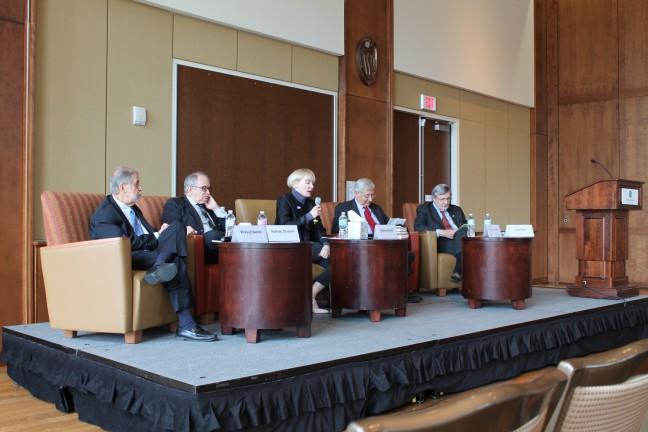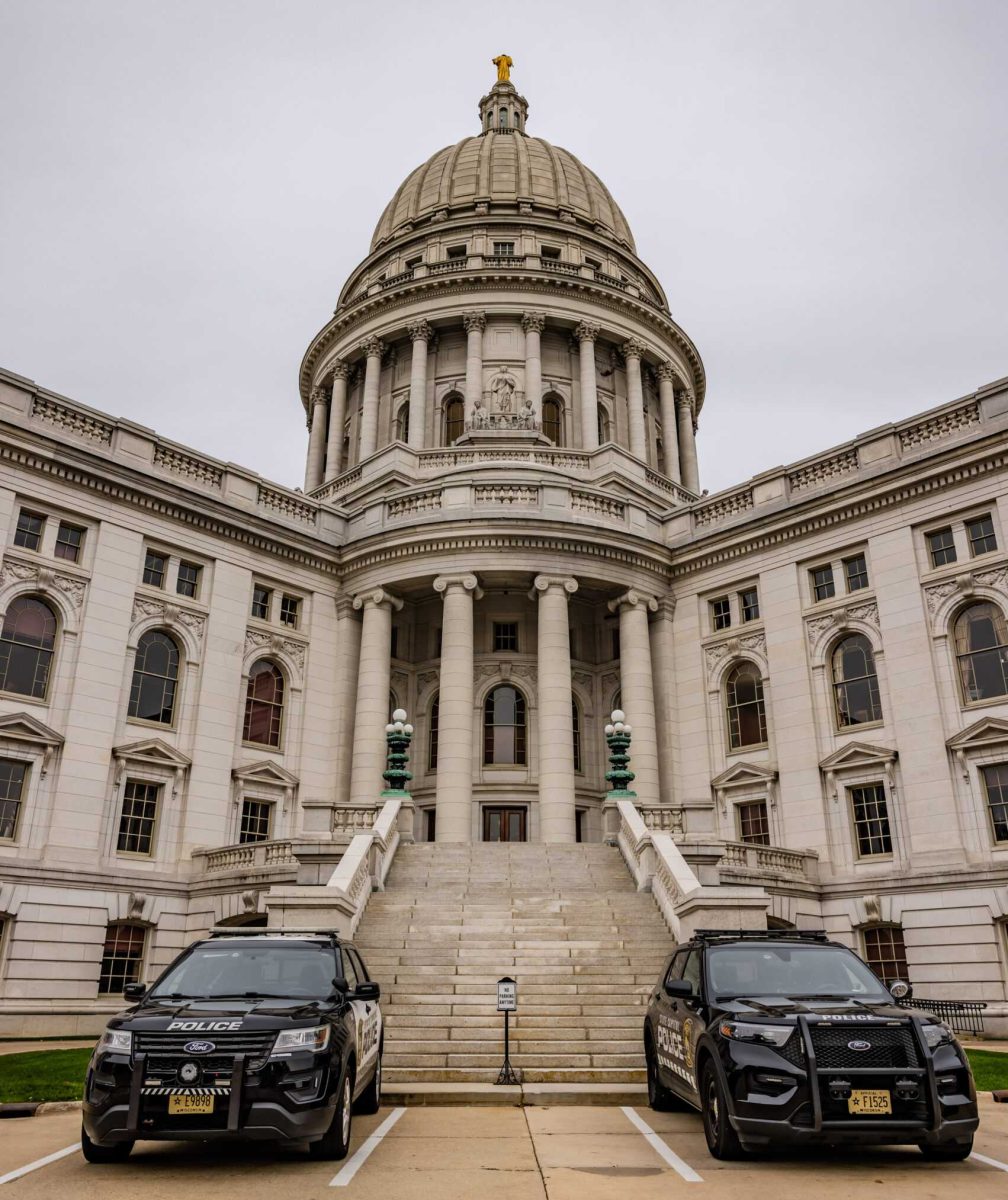Former legislators and political experts discussed the broken system of U.S. politics and the need for bipartisan conversation at Union South Tuesday.
Former U.S. Rep. Dave Obey, D-Wisconsin, said Congress has been becoming increasingly more polarized. He said in 1960, many members of the Senate were in the middle of the aisle with their views. Today, Obey said, most legislators have views that are one extreme or the other, making compromise almost impossible.
Obey said the American public is also becoming more polarized in their views because news today is largely advocating instead of reporting. Liberals watch MSNBC, conservatives watch FOX News and U.S. citizens end up in a feedback loop of their own views, Obey said.
“We have people self-selecting news,” Obey said. “They never have their own assumptions challenged and as a result we are more fragmented than ever.”
The lack of bipartisanship in the U.S. leads to a wide variety of issues, which the panelists outlined.
Former U.S. Rep. Mickey Edwards, R-Oklahoma, said even though the public votes on who is elected for Congress and for president, a small pool of partisan delegates decide who can run, which prevents people with moderate views from becoming legislators. A lack of moderates in the Legislature prevents productive bipartisanship and compromise, he said.
Redistricting, Obey said, is another issue that discourages compromise. Political candidates redraw district lines so they are more likely to win the majority vote. As long as candidates secure the majority, they can ignore the voice of independent voters. Obey said the district lines should be redrawn to force compromise.
Norman Ornstein, resident scholar at the American Enterprise Institute, a Washington D.C. think tank, said bipartisanship is discouraged because if legislators even work with the other side, they’re said to be “sleeping with the enemy,” and it damages them in elections.
Edwards said another problem with U.S. government is judges are appointed through partisan processes.
Ornstein said this opens the door for money to corrupt the judiciary system. If a judge has a case in front of them, they’re less likely to rule against someone who is wealthy because that could lead to campaigns against them in the future.
This leads to negative public attitudes toward government, which creates even more issues, Thomas Mann, senior fellow at the Brookings Institution in Washington D.C. said.
Another danger, Mann said, is that people focus too much on the negatives of the U.S. and end up creating more problems. He said our economy is actually really strong. Mann said the country as a whole would be less resentful about the state of the U.S. if they weren’t encouraged to be resentful by leaders in the Republican and Democratic parties.
“We need to roll up our sleeves and consider that the other party is legitimate,” Mann said.
One possible solution, Ornstein said, would be to have preference voting in which residents can choose their first and second choice. Others would be to enlarge the electorate or have nonpartisan redistricting.
For the broken political system to be fixed, the panelists said it was important for future generations to become involved in politics.
Edwards said it’s important for college students to take classes that enrich their thinking and encourage skepticism. He said it’s important for millennials in particular to engage themselves in politics and stay informed.
“If you walk into a voting booth and vote without knowing about [candidates], you are not performing a public service, you are a public menace,” Obey said. “Democracy relies on informed citizens.”


















